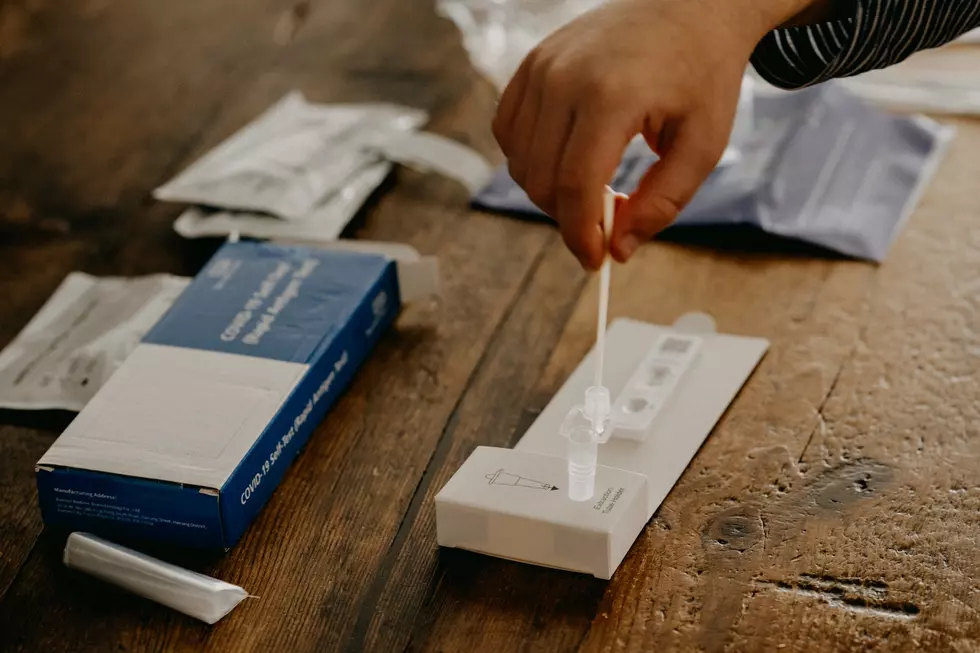
Mills Announces Alternative To 14-Day Quarantine for Tourists
The Mills administration announced Monday an alternative to the 14-day quarantine for tourists visiting the state.
To avoid the 14-day quarantine, most visitors to the state will be asked to sign a "certificate of compliance" to attest they have tested negative for the novel coronavirus within 72 hours of their visit. Also, the state will increase symptom checks at visitor centers and other places where tourists visit in large numbers. Additionally, the state will support efforts by municipalities to educate visitors about staying safe amid the pandemic.
The requirement will go into effect July 1, when Maine lodging facilities can start hosting out-of-state visitors.
In a news conference on Monday, Gov. Janet Mills said tourists should "know before they go," meaning they need to be sure they do not have the virus before coming into the state.
"The COVID-19 pandemic has loomed large over our state’s tourism industry. Many Maine people are fearful that more visitors will increase the spread of the virus while many small businesses are fearful that a lack of visitors will force them to permanently close their doors," Mills said. "It is my hope that by creating layers of protection to reduce the risk of transmission of the virus this plan will protect public health, establish Maine as a safe place to visit, and allow tourists to come to Maine to support our small businesses."
Because of the low COVID-19 rates in New Hampshire and Vermont, residents of those states need not quarantine or provide a certificate of compliance.
However, residents from areas with a higher prevalence of the virus -- including Massachusetts, Rhode Island, Connecticut, New York and New Jersey -- will have to provide the certificate of compliance at the hotel or other lodging facility at which they are staying.
Members of the group Work With ME, a collaboration of hospitality businesses, said Mills's plan needs more work and "will still devastate Maine’s Summer tourism season."
"The recently announced plan for “reopening tourism” based on mandatory testing is an unproven and unbalanced approach. It creates unnecessary obstacles for people trying to vacation in Maine" Eben Salvatore, director of operations at Bar Harbor Resorts, said on behalf of the group. "Even worse, based upon our national public health expert consultant’s research, the State’s approach will not deliver the level of safety and reliability being sought. Implementing this as a means of ensuring public health is therefore misleading and ineffectual.”
Mills on Monday also announced the expansion of the state's coronavirus testing capacity.
The plan would quadruple the state's testing capacity, develop more mobile testing sites throughout the state, and allow more people to get tested for the virus -- including tourists and seasonal workers visiting Maine.
The plan, which will be implemented in July, will create a new mobile lab anchored at the Maine CDC lab in Augusta. It also will develop 20 new "swab and send" sites across the state to ensure that 90 percent of residents can get tested within 30 minutes of their home. These 20 sites will complement the roughly 40 current testing sites available to the public.
The plan also will allow more people in Maine to get tested. Under the new guidelines, people who face a higher risk of exposure, with or without experiencing symptoms, can get a test without a primary care provider or a written order from a clinician. That could include visitors from other states with a higher prevalence of the virus.
However, Mills stressed that testing should be a backup, and visitors should be tested in their home states.
Below is a map of the proposed testing facilities.

KEEP READING: 10 Most Mispronounced Towns in Maine
More From WQCB Brewer Maine









